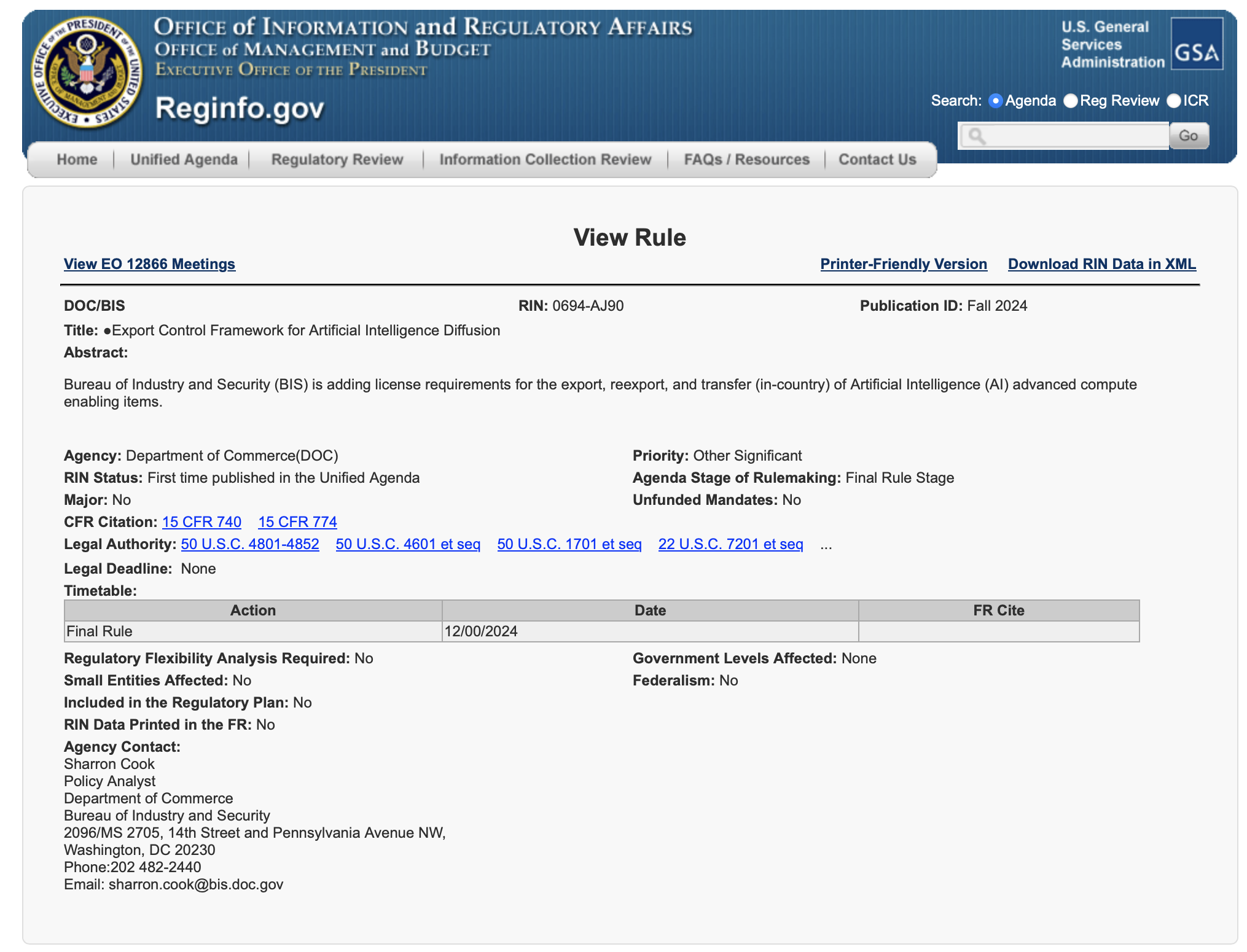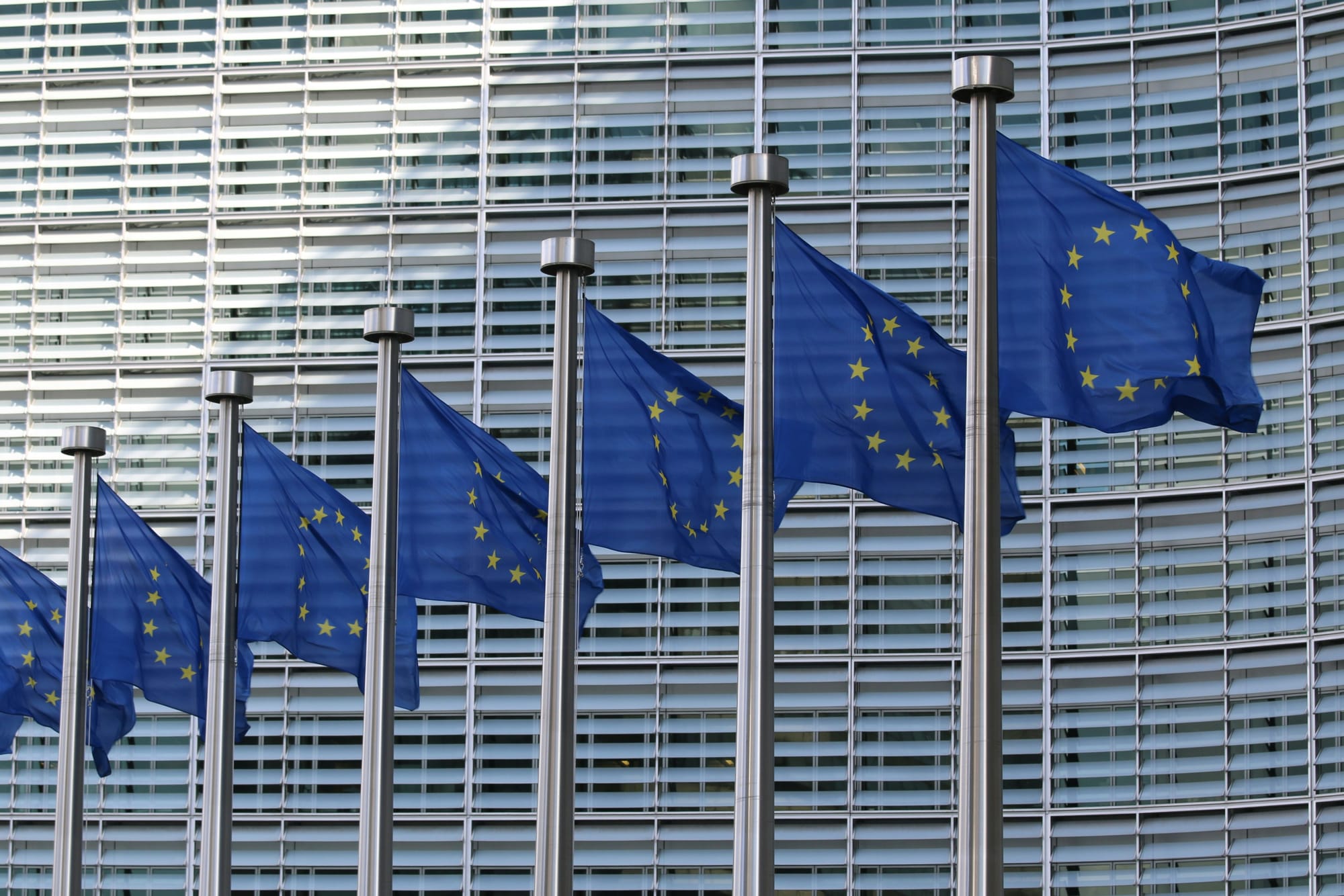EU joins Nvidia to attack Biden's "misguided" AI Diffusion rule
"In its last days in office, the Administration seeks to undermine America’s leadership with a 200+ page regulatory morass."

Nvidia has become the latest global tech firm to attack the Biden Administration's shock new rules on AI chip exports as anger grows globally.
Last week, the outgoing president unveiled new regulations that had been cooked up in secret and are designed to keep critical tech out of the hands of enemies like Russia or China.
This prompted a huge outcry from tech firms including big names like Oracle, which warned that the regulation was "one of the most destructive to ever hit the US technology industry".
Now the EU and Nvidia has joined Mark Zuckerberg and other leading tech figures in attacking Biden and pledging apparent support for President-elect Donald Trump - a move that once would have been totally unacceptable and forbidden in corporate life.
In his comments about the rules, Ned Finkle, Vice President of External Affairs at Nvidia, specifically praised The first Trump Administration, which "laid the foundation for America’s current strength and success in AI" and fostered an environment in which US industry could "compete and win on merit without compromising national security".
As a result, mainstream AI has "become an integral part of every new application, driving economic growth, promoting U.S. interests and ensuring American leadership in cutting-edge technology."
America's AI leadership under threat

Finkle said US progress was now in "jeopardy".
"The Biden Administration now seeks to restrict access to mainstream computing applications with its unprecedented and misguided AI Diffusion rule, which threatens to derail innovation and economic growth worldwide," he warned.
"In its last days in office, the Biden Administration seeks to undermine America’s leadership with a 200+ page regulatory morass, drafted in secret and without proper legislative review. This sweeping overreach would impose bureaucratic control over how America’s leading semiconductors, computers, systems and even software are designed and marketed globally.
"And by attempting to rig market outcomes and stifle competition — the lifeblood of innovation — the Biden Administration’s new rule threatens to squander America’s hard-won technological advantage.
"While cloaked in the guise of an “anti-China” measure, these rules would do nothing to enhance U.S. security."
The new rules risk weakening America’s global competitiveness and undermining the innovative streak that has made the US a leader, Finkle said.
"It is already undercutting U.S. interests," he continued. "As the First Trump Administration demonstrated, America wins through innovation, competition and by sharing our technologies with the world — not by retreating behind a wall of government overreach."
"We look forward to a return to policies that strengthen American leadership, bolster our economy and preserve our competitive edge in AI and beyond."
WTF is the AI IFR?

The Bureau of Industry and Security's proposed Interim Final Rule is called "The Export Control Framework for Artificial Intelligence Diffusion" (IFR) and sets strict license requirements for the export, reexport, and transfer (in-country) of "Artificial Intelligence advanced compute enabling items". Diffusion refers to the global spread or proliferation of advanced AI capabilities and the GPUs that power them.
It proposes a worldwide system of licensing and volume restrictions on AI technology and GPU hardware, rather than limiting controls to a few high-risk countries or activities.
The US government’s stated goal is to prevent certain high-powered AI that could be used to develop weapons of mass destruction or hypothetical “frontier” AI falling into adversarial hands. The rule aims to stop “diversion” or “aggregation” of large clusters of GPUs that could enable advanced AI development.
Instead of focusing on a small group of sanctioned countries or blacklisted entities, the rule extends controls globally. This includes close allies and countries not named in prior threat assessments. Under the rule, a large swath of normal AI or GPU deployments might suddenly trigger licensing requirements.
The IFR treats most of these settings as if they might be diverted for high-risk uses, requiring complicated new approvals. Critics say it lumps benign uses together with actual security concerns, chilling normal cloud innovation.
The IFR is effectively “final” (despite the “interim” label), and it landed without a public notice-and-comment process. Critics argue it’s so sweeping that it will disrupt years of cloud build-outs and GPU deployments globally, with minimal lead time and a compliance deadline of just 60 days after it hits the Federal Register.
It's also ludicrously complex. Under the new system, certain large US cloud providers would become “UVEUs” (Universal Validated End Users), which requires them to adopt stringent rules (like FedRAMP High requirements). Those rules were never meant for commercial data centers around the world. The IFR thus demands drastic operational changes to comply, imposing major costs and delays.
Because the IFR is so restrictive, many non-US or non-ally customers may choose alternatives - especially Chinese providers. The net effect, critics say, is that American companies lose market share while the Chinese cloud sector gains ground, contradicting US plans to to boost domestic semiconductor manufacturing and competitiveness through the CHIPS Act.
The IFR introduces new labels (AIA, ACM, UVEU, LPP, etc.) and global GPU “caps” that could end up meaning enterprises need to jump through complex licensing and regulatory hoops simply to enable basic workloads. Critics say it’s a bureaucratic maze that targets nearly every commercial AI and GPU use rather than just specific threatening ones.
Ken Glueck, Executive Vice President, Oracle, wrote: "There is an old adage in Washington that a regulation’s harmfulness is directly proportional to the number of new acronyms created (warning, spoiler alert). By that standard, the Biden Administration’s “Export Control Framework for Artificial Intelligence Diffusion” will go down as one of the most destructive to ever hit the U.S. technology industry.
"In a single confusing action, the BIS retroactively regulates global cloud GPU deployments; shrinks the global market for U.S. cloud and chip suppliers; establishes volume restrictions; tells 20 countries they can be trusted only if they agree to new unilaterally imposed terms—including certification and semi-annual reporting requirements—and likely pushes the rest of the world to Chinese technology, which the CCP will be only too happy to leverage to catch up with the US."
The old world claps back

Even the EU is up in arms about the rules. Which is a bit rich, you may argue, seeing as it has hit American Big Tech with tens of billions of dollars in fine over the past few decades.
In a joint statement, Executive Vice-President Henna Virkkunen and Commissioner Maroš Šefčovič said: "We are concerned about the US measures adopted today restricting access to advanced AI chip exports for selected EU Member States and their companies.
"We believe it is also in the US economic and security interest that the EU buys advanced AI chips from the US without limitations: we cooperate closely, in particular in the field of security, and represent an economic opportunity for the US, not a security risk.
"We have already shared our concerns with the current US administration and we are looking forward to engaging constructively with the next US administration. We are confident that we can find a way to maintain a secure transatlantic supply chain on AI technology and super computers, for the benefit of our companies and citizens on both side of the Atlantic."
Have you got a story or insights to share? Get in touch and let us know.




